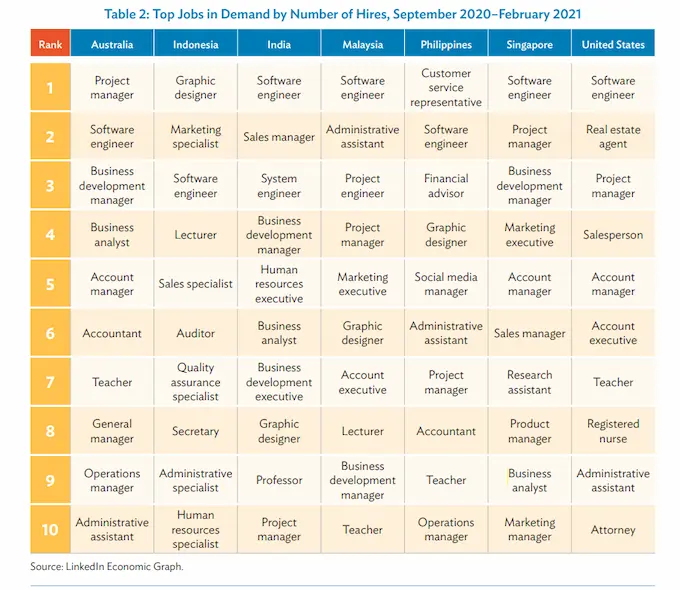With the rise of big data, the need for skilled business analysts has surged. Companies are increasingly relying on analytics to enhance operations, improve customer experiences, and drive profitability. Employment for management analysts is projected to grow by 14% from 2020 to 2030 (via U.S. Bureau of Labor Statistics), much faster than the average for all occupations. This growth reflects the increasing reliance on data analysis across various industries. As a result, pursuing a degree in business analytics is not just a smart choice, it’s a strategic move for anyone looking to excel in today’s international job market.
Schiller International University offers a Bachelor of Science in Business Analytics that prepares international students to meet this demand. By studying business analytics from Schiller, you will learn to navigate the complexities of big data, turning raw numbers into actionable strategies. But why can studying business analytics be a game-changer for your career?
1. High Demand for Business Analysts

The demand for skilled business analysts continues to rise. Modern businesses are generating unprecedented amounts of data, needing skilled business analytics professionals to interpret it. They need data to identify trends, risks, and opportunities. This need makes business analysts a critical asset in nearly all sectors. Business Analytics roles are consistently among the fastest growing, with an approximate increase of 32% year on year in recent times (via LinkedIn Economic Graph). The global big data and business analytics market size was valued at $225.3 billion in 2023, and is projected to reach $665.7 billion by 2033, growing at a Compound Annual Growth Rate (CAGR) of 11.6% from 2024 to 2033. (1)
2. Lucrative Career Opportunities
The average salary for a business analyst in the U.S. ranges from $84,278 to $90,000 annually, with experienced professionals earning well over $120,000 (by Fortune.com). In Massachusetts, business analysts make the highest salary, at $134,350 a year—followed closely by Wyoming ($126,840), New York ($126,450), Vermont ($125,240), and New Jersey ($122,840). Professional business analytics positions also see strong salary growth. Entry-level roles are often well-compensated, and you will find that your earnings can rise rapidly with experience and expertise. The median annual wage for management analysts in 2022 was $95,290. The financial return of studying business analytics is one of the most compelling reasons to pursue this degree.
3. Data Expertise
By studying business analytics, students can gain the ability to transform raw data into actionable insights. The business analysis skills will help to interpret complex data sets. You will master mathematical models and other analytical tools to discover how to extract crucial information. The ability to derive business value from data makes you indispensable. Big data is constantly growing, and skilled data interpreters are needed. This data expertise allows businesses to make better decisions using data instead of guesswork. You will master the ability to use software like SQL, Python, and R, which will allow you to make sophisticated analysis. These mathematical models will help to make your business strategies.
4. Skill Development

Studying business analytics equips students with valuable skills in data analysis, statistical modeling, and decision-making processes. You will learn data modelling, statistical analysis, data visualization, and business intelligence tools. These diverse skills equip you for a wide range of roles in different industries. You will be able to work with technology and understand the operations of various organizations. Such a combination is appealing to employers.
5. Impactful Decisions
Decision makers rely on business analysis to make effective business strategies. Your analysis informs strategic choices. The decision-making process becomes more precise, and the strategies are more effective. You will learn to present your findings with clarity and confidence and this communication ability helps executives understand your results. Your work will directly influence the bottom line. A degree in business analytics allows you to directly improve business outcomes. With the increase in data complexity, the role of data analysts is vital. This is where you step in to influence decision making process.
6. Problem Solving
Business analysis hones your analytical thinking. Students learn to approach problems methodically and this enables them to apply data to identify and develop solutions to complex business challenges. The skills you learn will help to spot issues, evaluate viable solutions, and make recommendations based on evidence. This problem-solving skill makes you an asset as you can approach situations with clear logic and insight and solve real business issues. Your ability to analyze data will help you navigate all kinds of complex situations.
7. Innovation Driver
Business analytics is a powerful tool for innovation. It helps modern businesses to identify unmet customer needs and make informed product improvements. With data, companies can predict market trends and allow them to bring novel solutions and offerings. The insights gained by data analysis can drive operational efficiencies. Business analytics is important for business strategies as it contributes directly to organizational growth.
8. Competitive Edge
Big data will continue to increase, and a business analytics degree will offer specialized skills. This will make you stand out from the rest as the need for data-driven decision-making will keep on growing. Technological advancements will require data analysis to improve, and students will gain the analytical and technical competencies needed for success. You will learn about mathematical models, business analysis and the latest technologies. This means you will be ready for the changes ahead. Companies look for candidates with data expertise and problem-solving capabilities. Continuous skill development in business analysis will help to future-proof your career. You will find that the skills gained in this field are truly relevant to the tech landscape.
9. International Perspective
Studying at Schiller’s campuses in three different countries enriches your educational experience and provides a global perspective on business analytics. Students interact with peers from diverse backgrounds, enhancing their understanding of global markets and cultural dynamics. This international exposure enhances your networking opportunities and broadens your understanding of global business practices.
10. Networking Opportunities
Enrolling in a business analytics program allows students to build valuable professional networks. During your studies, you will connect with industry professionals through internships and collaborative projects. These connections can lead to job opportunities post-graduation. Building a strong professional network is vital in today’s job market, especially in dynamic fields like business analytics.
Why Schiller's Business Analytics Degree Stands Out?

Schiller's Bachelor of Science in Business Analytics emphasizes real-world application, preparing students for the dynamic business environment. The curriculum focuses on agile methodologies, enabling students to adapt quickly to changing market demands. You will acquire essential digital skills, gaining hands-on experience with industry-standard tools and technologies. This practical approach allows you to analyze data effectively and identify valuable insights that drive strategic decision-making. By engaging in project-based learning, you will work on real business challenges, enhancing your problem-solving abilities. Graduates emerge as competent professionals ready to tackle the complexities of modern business analytics with confidence and expertise.
|
Program Details |
Information |
|
Intake |
September |
|
Campuses |
Madrid, Paris, Heidelberg |
|
Duration |
4 years |
|
Credits |
120 US Credits (240 ECTS) |
|
Program Focus |
Data-driven strategic leadership |
|
Key Skills |
Analytical, Digital, Core Business |
|
Learning Approach |
Hands-on, industry-standard tools |
What Will You Learn?
Students will learn core business principles, including marketing, finance, and operations, while mastering digital strategies and analytics. The curriculum includes general courses like Behavioral Psychology and Introduction to Big Data, alongside knowledge area courses such as Data Analytics, Machine Learning, and Digital Marketing Technology. Electives further enhance learning with options in Leadership and Sustainable Development. This comprehensive approach ensures graduates are prepared for diverse roles in business analytics, combining technical expertise with critical soft skills for effective collaboration and decision-making.
How You'll Learn?
Schiller provides a global learning experience. Study on our campuses located in Madrid, Paris, or Heidelberg. You learn to solve real-world problems and will work with a global student body. Our Global U Academic Model prepares our students for a global career. The BS in Business Analytics program delivers the skills and knowledge you will need to succeed. The Global Employability Path helps you secure your dream career.
Get Started with Schiller
For those considering a career in this innovative field, Schiller International University’s BSc in Business Analytics offers invaluable insights into data-driven decision-making. With a comprehensive curriculum, practical experience, and international exposure, this program positions graduates for success. The dynamic nature of business analytics ensures that your skills remain relevant and in demand. Schiller’s degree in business analytics prepares you for a data-centric career and you will become business analytics professional ready to make a real bottom line impact.

 Apply Now
Apply Now









